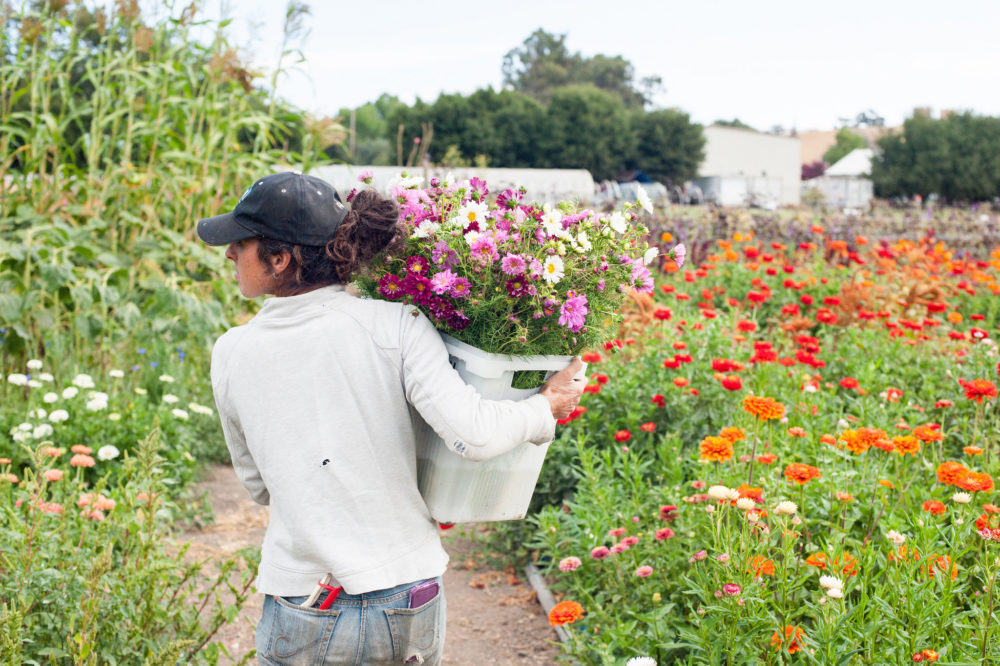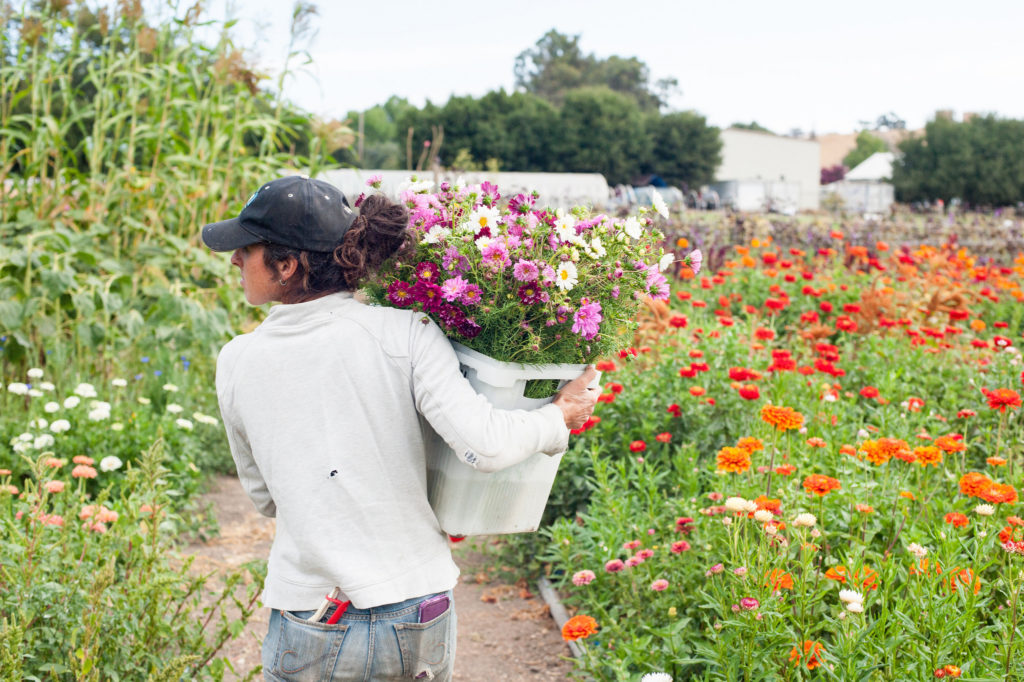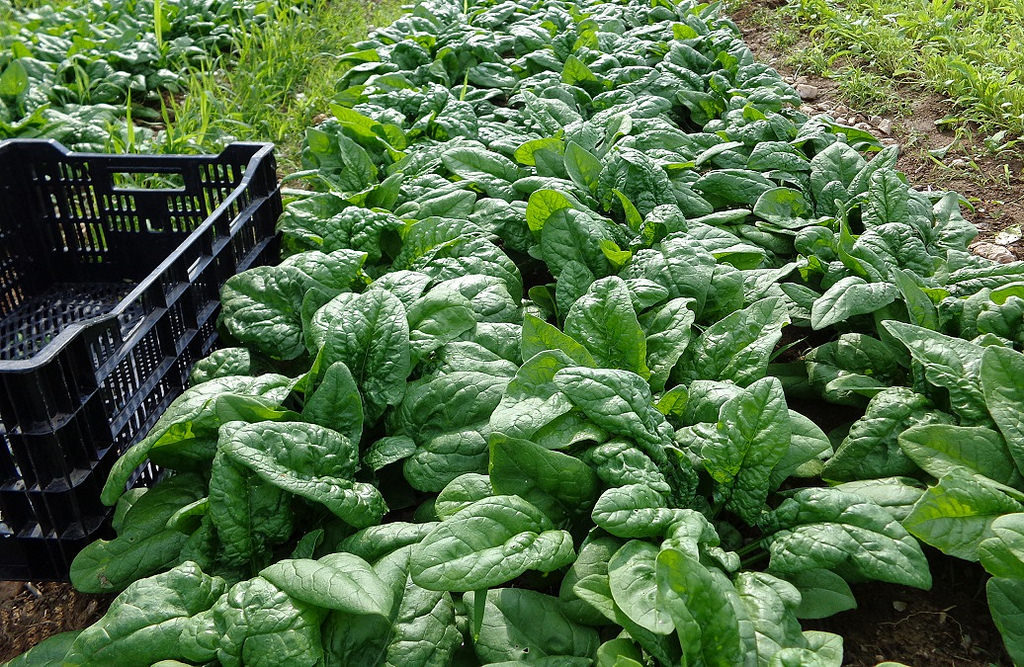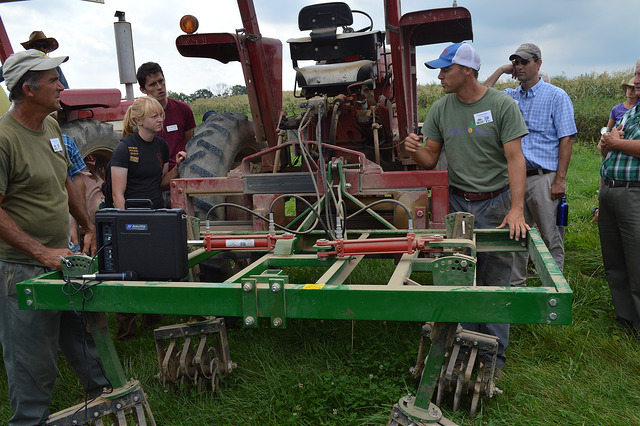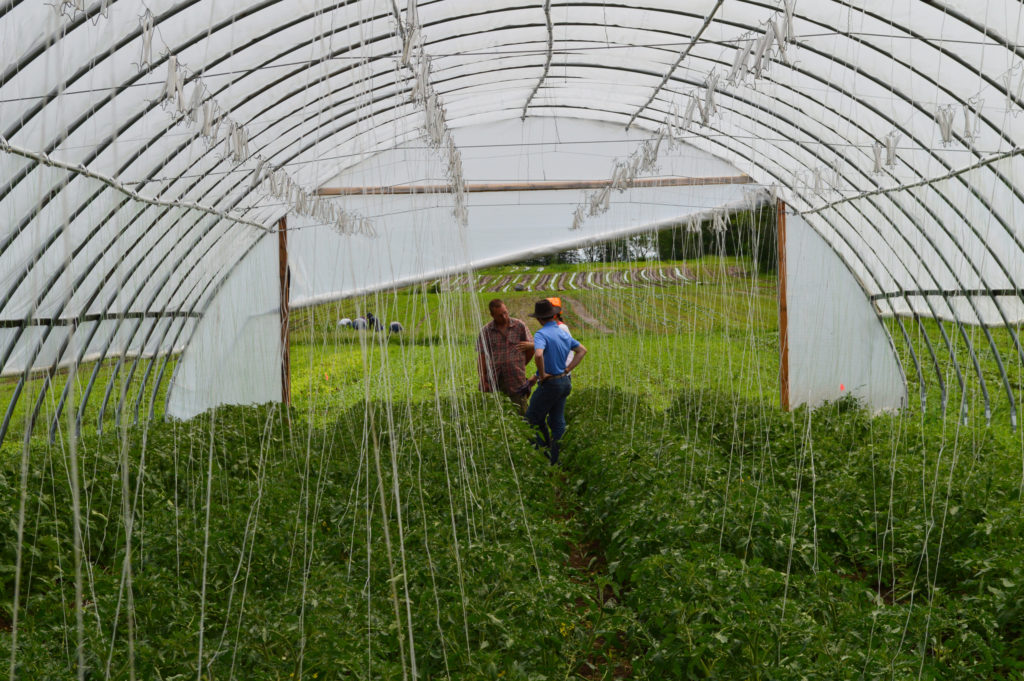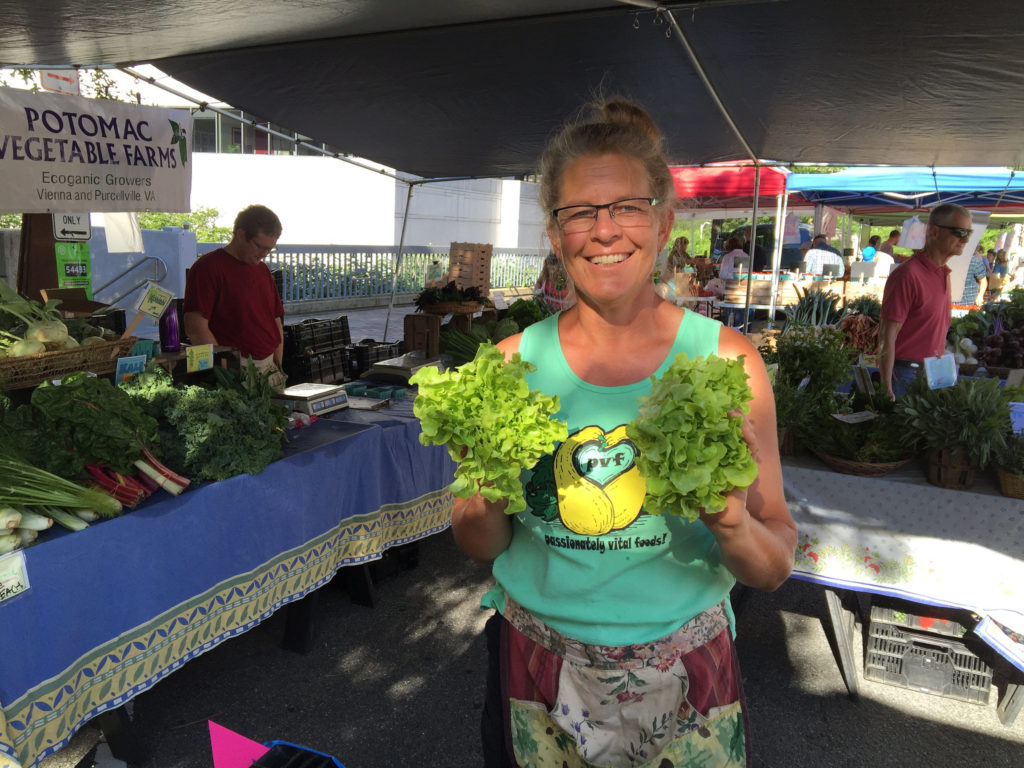By Ellen Polishuk, Plant to Profit | Friday, Sept. 28, 2018 –
There is a groundswell of interest in farming across this country. More folks than ever from non-farm backgrounds are feeling the call to become farmers. There are scads of how-to books and videos with details on how to grow any crop. But what hasn’t been easily found, until now, is a book that helps guide new growers on how to think about farming and how to get their minds “right” before jumping in.
Here’s an excerpt from my new book Start Your Farm that helps a newbie grasp one set of skills needed before venturing out to farm shop.
Production Capabilities
You’re about to start growing things for a living. This means, by definition, that you’ll have to have a green thumb, and perhaps a way with animals as well. At its core, a farm harnesses the power of the sun, transforming it into food, feed, flowers, and fiber (e.g., wool, cotton, hemp). Not only will you have to be good at growing plants, but also at managing Mother Nature’s free resources: sunlight, rain, soil, and carbon. In other words, your skill set for “growing”—regardless of what you ultimately produce—must be high.
Think about what you’ve grown well so far and how you know that you did a great job. You’ll be competing in the marketplace with all kinds of other growers, from old-time backyard gardeners to full-time professional farmers.
“Before you plant your first seed for commercial purposes, you should travel to other farms, gardens, field days, seed trials, and open houses.”
If you’re going to make it, you need to know what the standards are—what “good” is. This means witnessing with your own eyes what an excellent crop of tomatoes looks like, or a healthy brood cow, or high-quality hay. These are things you must know, and to do so, it’s crucial to get yourself in the presence of excellent examples. Before you plant your first seed for commercial purposes, you should travel to other farms, gardens, field days, seed trials, and open houses. Get up front, ask questions, and begin to collect and fathom some answers.
For most budding farmers, it’s the “growing” part that gets them thinking about having a farm, to begin with. If you’ve gotten this far, you probably already like working with plants or animals. You like being outside, being active, getting dirty, and watching things grow. To turn this into a successful business, however, you have to be good at this—really good. It won’t matter how lovely the homestead looks, or how beautifully you can set up a farmers’ market display, or how many wonderful spreadsheets you can create to keep track of your sales and expenses. If you don’t have lots of high-quality product coming off of your land, even the best systems will soon fall apart.
“If you don’t have lots of high-quality product coming off of your land, even the best systems will soon fall apart.”
This is why we strongly recommend working with an experienced farmer early on. Knowing how to grow things well is the kind of skill you want to get paid to learn because doing it on your own dime can quickly become very expensive! When you work for a grower, you get to watch them make mistakes and observe their successes. You can then take that experience and knowledge with you into your own farm business. The good news is that such training opportunities abound, and we will outline them for you in chapters 4 and 5.
Getting good at growing is just one of the base skills needed to become a successful farmer.
If you’re thirsty for more, join me at the CFSA conference in November for a half-day workshop, Start Your Farm: Do You Have What It Takes to Be a Sustainable 21st-Century Farmer? on Friday, Nov. 9 from 8:30 – 11:30 a.m.
Ellen Polishuk is one of our featured speakers for the 2018 Sustainable Agriculture Conference. In addition to her half-day workshop above, she’ll also be presenting:
- Upping Your Game on Soil Health: What’s Next for Your Farm? on Friday, Nov. 9, during the Pre-Conference Afternoon Intensive.
- How to Think About Your Farm Business: Profitability, Management, & Money, on Saturday, Nov. 10, during Workshop Session C – Saturday, 1:30 – 2:45 pm
We hope to see you there!
All images by Ellen Polishuk.


